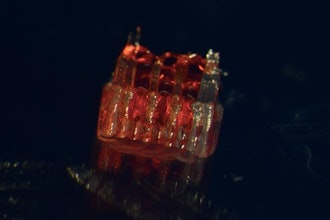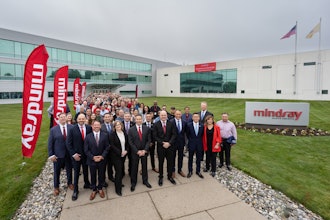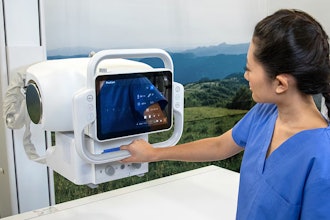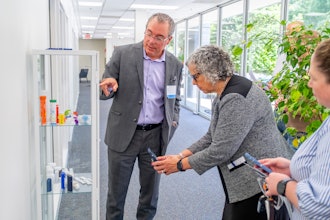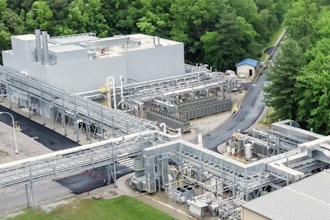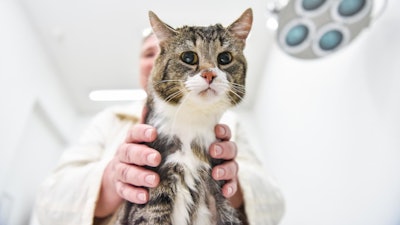
Young scientists from a small innovative enterprise based at the National University of Science and Technology MISIS have developed biocompatible bone implants based on ultrahigh molecular weight polyethylene (UHMWPE).
The core of the hybrid implant is made of porous ultra-high molecular weight polyethylene, and the frame is made of titanium alloy printed on a 3D printer. Such a structure imitates the structure of the real bone, where UHMWPE corresponds to the porous internal, trabecular part, and titanium alloy imitates the solid external, cortical part.
In March-April 2019, the implant was implanted in a domestic cat Lapunya (~Sweetie in English) after the removal of a 6 cm bone fragment, damaged with osteosarcoma.
In collaboration with the N. Blokhin National Medical Research Centre of oncology, a unique bone-cellular structure was developed.
Biomimetix' specialists manufactured the implant, and their colleagues from the Laboratory of Cellular Immune System doped it with the cells extracted from bone marrow of the cat, to shorten the adaptation period.
The surgery was carried out by surgeons of the veterinary clinic "Biocontrol."
"Our implant almost completely corresponds to the usual bone. First of all, this means that it will not take on excessive load, so the bone at the place of its attachment will not become brittle, as it often happens with metal implants. In addition, the polymer surface of the implant is convenient to dope it with the patient's own cells, which significantly accelerates survival. This is especially important given the fact that we cannot explain pets that at the time of recovery the limb should be protected," says Fyodor Senatov, CEO of Biomimetix, researcher at NUST MISIS Center of Composite Materials.
According to the postoperative observations, in July 2019 the implant fits well, the dynamics of recovery is positive and the cat can walk normally. Thus, the implantation of such a hybrid cell-engineering implant becomes a good alternative to the traditional radical treatment -- amputation, as well as to much more complex metal implants.











